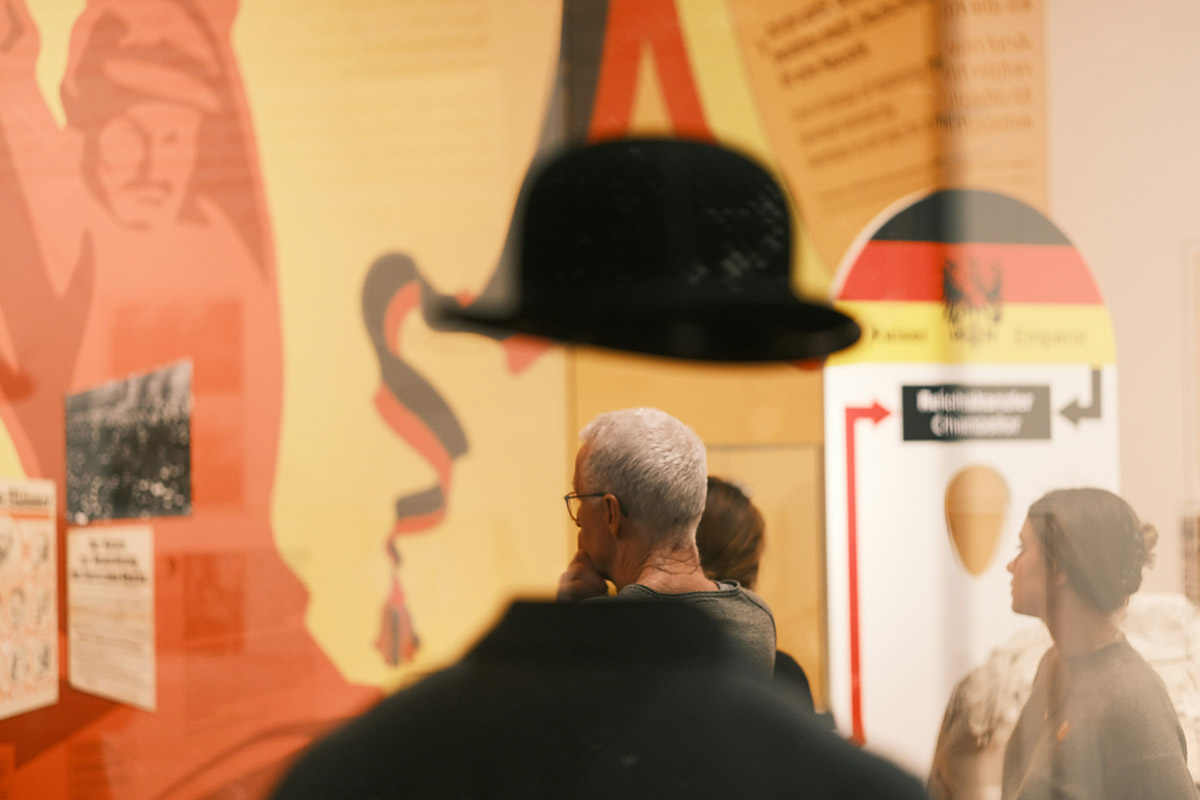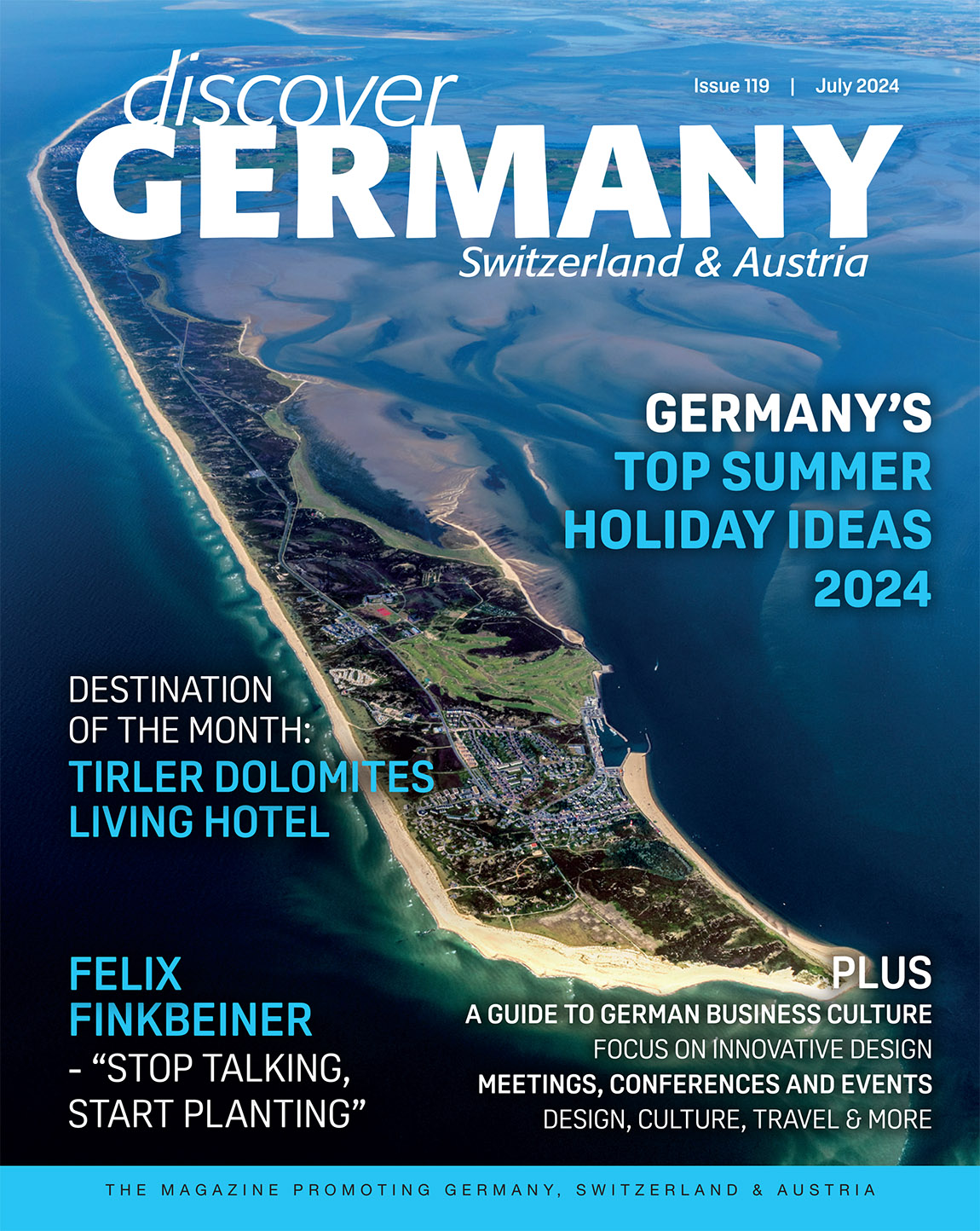Barbara Geier: Name inspiration

So, Emilia and Noah. Like those names? Germans do. This is according to the latest list of the most popular baby names, released annually by the ‘Gesellschaft für deutsche Sprache’ (GfdS), the country’s main language society. The organisation has been publishing these rankings of the most frequently used first names in Germany since 1977, analysing the data from German registry offices.
Coming back to Emilia and Noah: In 2022, they have been parents’ favourite choice for the third year in a row now and GfdS also informs us that new parents continue to give their children short names with many vowels. More detail? No problem: Current favourite first letters are E, M and L, with 13 of the top 20 names beginning with one of these letters. Got to love those data crunchers. It’s really interesting to see how – for want of a better word – ‘old-fashioned’ names have become so popular again. For girls, Sophia/Sofia and Emma follow in second and third place and also in the top 10 are Klara/Clara and Marie, all names that for many decades were associated with people being born, well, long ago.
It’s a bit different for the top three boys’ names which I would class as ‘imported/international/lifestyle ’ names, with Matt(h)eo/Mat(h)eo and Leon following on Noah at number two and three respectively. But I’m pleased to see that with Paul placed at five and Emil at seven, old names are also very much new again. The latter happens to have been my father’s name who all his life complained about having such an ‘uncool’ name. Well, no more!
Interestingly, Germany’s language society has in its recent report also analysed the most popular name in the country’s German-speaking neighbouring countries Austria and Switzerland to see how similar – or different – they are. Let’s take a look, shall we: In Austria, the list of the ten most popular first names contains four names that are also among the top names in Germany, namely Emilia, Emma, Mia and Hanna as well as Paul, Elias, Leon and Noah. However, there are clear differences as well: With Valentina, Maximilian and Tobias, longer names with more consonants are among the Austrian top ten.
The list from German-speaking Switzerland – we’re told – even more clearly shows the vowel sound and brevity trend detected in the German one: 18 out of 20 names begin with the letters E, M, L and N, and at least in the case of girls all top ten names are made up of the vowels A, E and I and the consonants M, N and L. However, and this is where it gets interesting, while the make-up of names might be similar, many of the popular Swiss names are less common or let’s say completely unknown in Germany. For the boys, the most striking examples of that from a German perspective, would be the top ten names Lio, Leano and Liam, and for girls, Elin or Malea.
While I’ve heard of the (Swedish) name Elin, Malea, which made a huge leap from place 23 in 2021 to number ten in 2022, was new to me – and, curiously, the German internet tells me it’s of Hawaiian origin, meaning ‘flower’, while the English-speaking internet has other ideas: Hawaiian, yes, but with a variety of meanings, including ‘Of the Sea’, ‘Calm Waters’ or completely different things. Never mind, whatever it means, it clearly made its way to the mountains of Switzerland. And should anyone read this who’s currently searching for a good name for a soon to born boy or girl, why not take some German, Austrian or Swiss inspiration…
Barbara Geier is a London-based freelance writer, translator and communications consultant. She is also the face behind www.germanyiswunderbar.com, a German travel and tourism guide and blog that was set up together with UK travel writer Andrew Eames in 2010. Disclaimer: The views and opinions expressed in this column are those of the author and do not necessarily reflect the official policy or position of Discover Germany, Switzerland & Austria.
Subscribe to Our Newsletter
Receive our monthly newsletter by email


